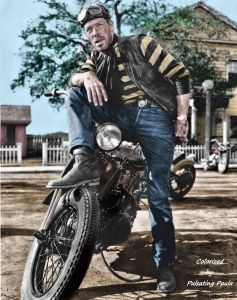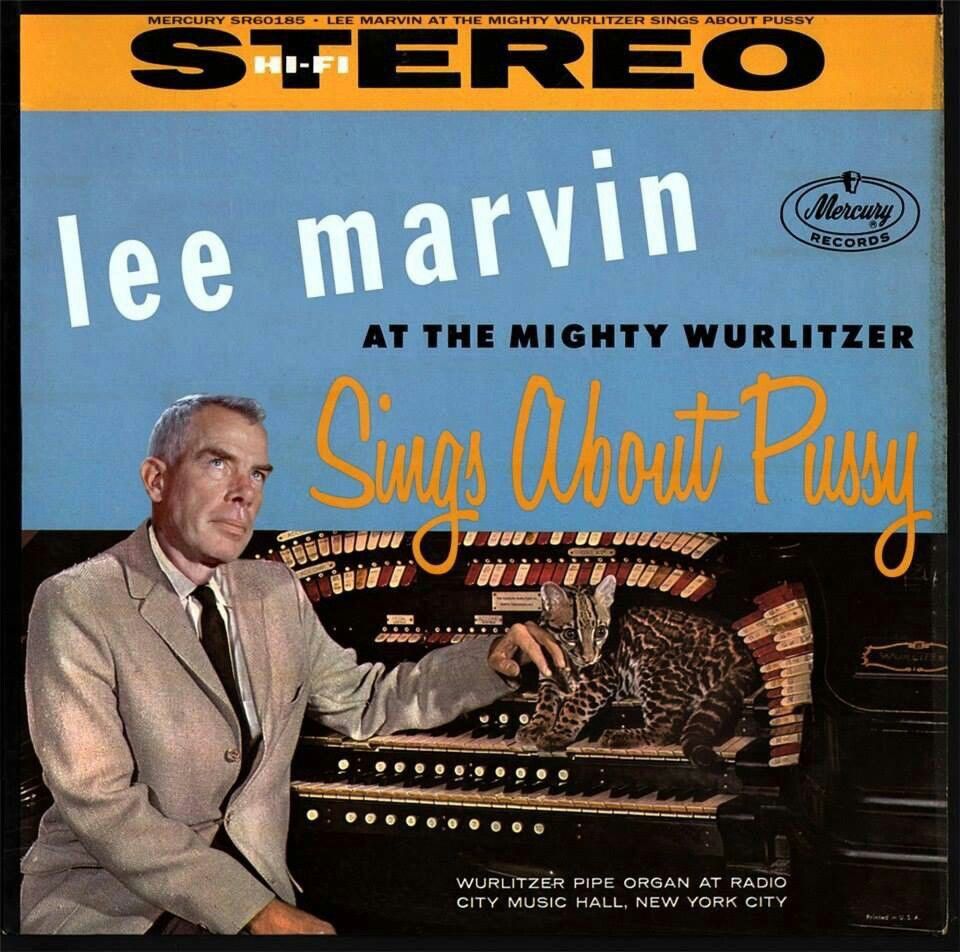
I laughed twice watching the 1957 comedy The Iron Petticoat, both times right near the end. First laugh was when Bob Hope, as an American soldier, warns a departing a Soviet army pilot that he needs to be re-vaccinated: “You have a long flight ahead, so get it in the arm.” Ass joke. The next was when I re-watched the scene and I heard Hope tell the pilot to enter the “Main Entrance Navigators” door, which, he explains, is abbreviated to M-E-N. Bathroom joke. Well, I caught it the second time.

Otherwise, the film feels slow but undernourished, a long flight to the end without an ass-saving shot in the arm. The script, about a female Russian military pilot defecting to Britain out of pique at a promotion given by Soviet army brass to an undeserving male flyer, was written by, or at least attributed to, the great Ben Hecht, a guy from whom we expect better. Sample lines: “A good communist has no subconscious!” and “You wouldn’t do this if I was wearing glasses!” More sample lines: a Southern senator stereotype huffily asks if the reason Brits drive on the left side of the road is politically significant, or “is it just part of your natural cussedness?”
Call me low-brow, but I preferred the bathroom joke.

Hecht was nodding here. His writing is watered-down gruel, skimmed off better material. And it’s pretty slim skim. An inflatable bra is interpreted by the stern lady pilot as signifying “the illusions of democracy.” Well, maybe it does; we can’t all have equal-sized boobs, can we? The gag sounds as if it must’ve come from sheer desperation out of that blow-up brassiere itself, after a dip into the old joke-kit bag turned up empty (at least we didn’t get an iron bra joke). Perhaps the producers should have called the film Automatic Pilot. Just to clear up any illusions we had of watching something fresh and funny.

The earlier, better material that will probably come longingly to mind as you watch is Ninotchka, which did everything better. It even had a better bathroom joke. Maybe Hecht and director Ralph Thomas should have borrowed Billy Wilder’s office sign and asked themselves how Lubitsch would have done it. (Although Lubitsch already had, so everyone involved here could just have packed up and gone home.) Petticoat’s story takes Ninotchka’s plot, that of a severe Soviet commissar seduced by the glories of capitalism and Paris, then throws out Paris, adds some military and Cold-War politics, stirs in an attempted kidnapping, and ends it with the heroine almost on her way to being shot for treason. That had me rolling in the aisles.
However, it seems Hecht may not really have been to blame for the screenplay (anyone who worked on that great script for Notorious deserves a break). Per Roger Fristoe at TCM, Hecht had written his own Petticoat script, but then down swooped Bob Hope with his gaggle of gagwriters and re-wrote it to suit him (that probably explains the ass and bathroom jokes). A miffed Hecht took out a newspaper ad disavowing his work, with Hope responding in snarky kind, with another ad that claimed the film was a roaring success. From a 60-year perspective, these may be minor issues, the kinds of problems that attach themselves to the rich, successful, and famous. But a writer’s integrity should be important, and the end result is what matters. And though Hope cockily asserted in print that Petticoat was a hit, the film flopped like a burst soufflé. It eventually disappeared into Hope’s vaults, when the rights reverted to him, moldering like that ruptured pastry until its rediscovery and restoration in 2012. Unlike Jack Benny, Hope seemed unwilling to run extra gag mileage on his cinematic bombs, but preferred to forget they existed. Flops don’t bear thinking about, I guess.

Today Petticoat is a curiosity item—hey, did you hear about the time Bob Hope and Katharine Hepburn actually made a movie?—a one-off pairing between two stars who mix as well as gruel and soufflés. Though critics excoriated Hepburn for her “-ink” Russian accent, I think Hope is the film’s problem. He has no chemistry with Hepburn, and seems barely able to acknowledge her presence. She’s only there because somebody had to be; jokes have to bounce off something. It’s like Hope approached the film as a contractual fulfillment; two more scenes and I’m off to Palm Springs. And he had no conception, no knowledge of his part. Though he’s playing a military man, Hope can’t be bothered to walk like one. Instead he strolls into a scene as if onto a nightclub stage, with that slightly fey, slightly pompous, faux-relaxed pose of the nightclub comic, where only getting the yock matters. Hope doesn’t play characters in his films, he plays the room. His eyes restlessly seek an invisible audience while thinking only of the next beat, the next gag, the next line that’ll break ‘em up. Everything he says here sound rote and half-hearted, even the requisite Bing Crosby joke. Maybe Crosby should have taken out an ad.
I’ll give credit to Hepburn for not re-doing Ninotchka but for trying something different. She doesn’t play humorless like Garbo; she smiles and jokes and acts old-boy hearty with the (male) army brass. After all, as a soldier she’s one of them, they’re her peers. It’s a good choice, I think. You view Hepburn not as Garbo-lite but as a freshly conceived character in the Hepburn mold: a strong, independent woman who’s yet classy and feminine. Although Hepburn by now was showing her age, she still has fabulously gaunt cheekbones (they literally cave in below the boneline) and she’s gorgeous in a tulle-laced evening gown garnished with opera-length gloves; at such moments she exudes that ineffable Hepburn aura of tomboy chic. (She also looks mighty fine in an army uniform, which flatters her slim lines.)


But her performance is undercut both by the Hope(less) gags (unlike her co-star, Hepburn played people) and the lax direction. A lengthy restaurant scene has a group of bumbling Soviet spies attempting to snatch Hepburn from her Western captors, she all the while slipping unknowingly out of their grasp. It’s meant to be played for farce, with the usual missed-opportunity gags (the spies keep trying to lure her into the powder room, but she never quite gets there), but the scene fizzles. It’s not that it’s badly done, it’s just doesn’t amuse. You comprehend the jokes but you don’t laugh. The rhythm’s not there; it’s too slow and lacks edge. A Wilder or Sturges could do such scenes in their sleep. Like great singing or dancing, it’s the sort of stuff that looks easy when done right. But The Iron Petticoat seems encased in its title metal; it sinks when it should bounce. A long flight, indeed. After 90 minutes of its cast-iron wit, I was ready by film’s end to head for the M-E-N room myself.






crayle
/ September 8, 2017Excellent work! Entertaining review of a film that failed to entertain.
Grand Old Movies
/ September 8, 2017Thanks so much! It’s disappointing that a film that seemed to promise so much really lets down its audience. However, it does remain a fascinating failure.
chandlerswainreviews
/ September 10, 2017Wonderfully insightful, and I think you’ve pretty much covered what would become severely problematic points in many of Hope’s later performances.
Grand Old Movies
/ September 10, 2017Thanks so much! Agree about Hope, there’s a dismaying sameness in his performances, no matter what the story is about. It’s as if he saw himself as a commodity, giving his audiences standard Hope, Inc. when acting in a film. It does make his later films hard to watch.
mistermuse
/ November 28, 2017I haven’t seen this one, but in his Katherine Hepburn biography (KATE REMEMBERED), A. Scott Berg writes of it that “Hepburn got snookered into what she would always consider the worst film on her resume. [She] knew that going in, but with a script by Ben Hecht, she felt safe. She did not know that Bob Hope was, as she later recounted, “the biggest egomaniac with whom I have worked in my entire life. Hope brought in his own team of writers to punch up his lines, and he shamelessly ad-libbed. I had been sold a false bill of goods.”
This is a different ‘picture’ of Hope than most of us have, and he of course was tireless in putting on shows for the troops during WW II and Korea, but as for his films, he should have quit while he was ahead (the Road movies with Crosby and his other earlier films).
Grand Old Movies
/ November 28, 2017I recall reading something about Cary Grant originally being considered for Hope’s role, so perhaps that may have been a lure for Hepburn–to be reunited with one of her best co-stars with a script by Hecht would no doubt have been attractive (though Grant was frequently mentioned for roles in which he never materialized, so I don’t know how much substance there was to that notion). As it was, Hope seems to have taken over the picture and no one had the clout to oppose him. Perhaps a stronger director may have reined him in. One of the reasons I think the Road films, which I love, work is that Crosby is a big enough personality not to be overwhelmed by Hope. We rarely remember Hope films for his co-stars (Jane Russell may be another exception).
I agree with your point that Hope’s movies really declined after the Road films. They seem to have become protracted in-jokes that have no meaning beyond Hope’s rather snarky film personal (and I always wince when Hope tries to play serious, such as in The Seven Little Foys or Beau James). Whereas Hepburn after the 1940s really grew as an actress (probably bolstered by the Shakespeare theater tours she was doing). She and Hope just don’t mix at all in their film; it’s like they’re acting at each other behind glass. Iron Petticoat is kind of a one-off film to watch, something to see just to say you saw it (like Plan 9 From Outer Space or something). I think it’s on DVD, and you can occasionally catch an upload on Youtube.